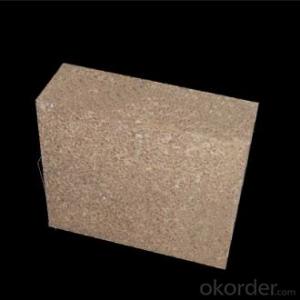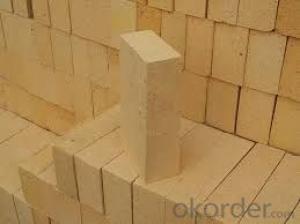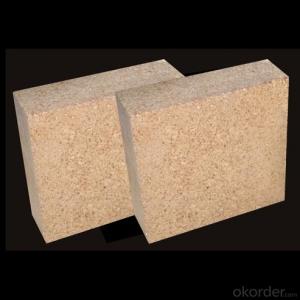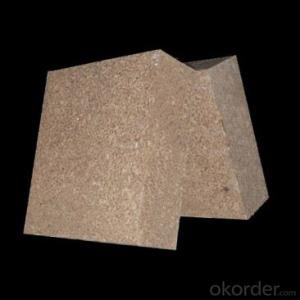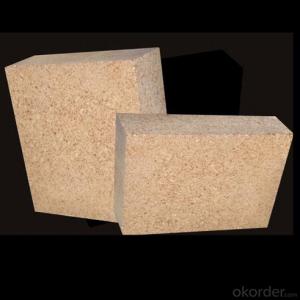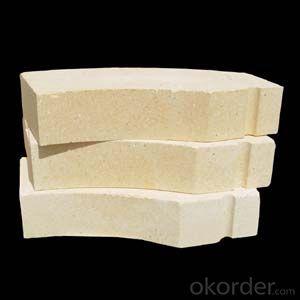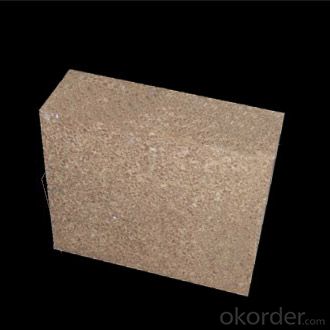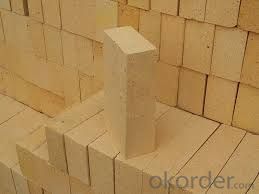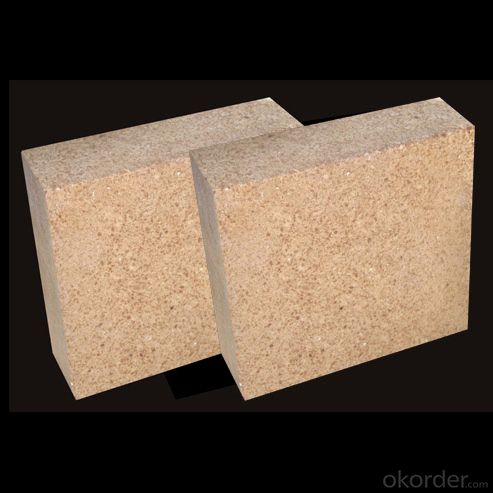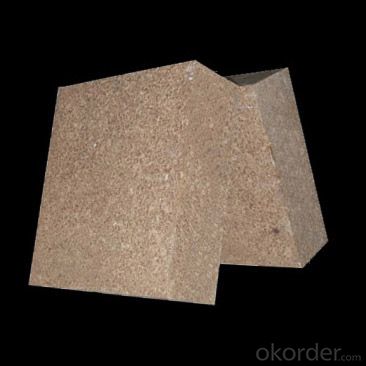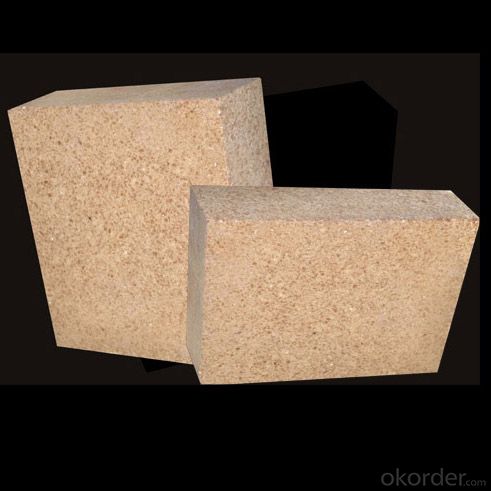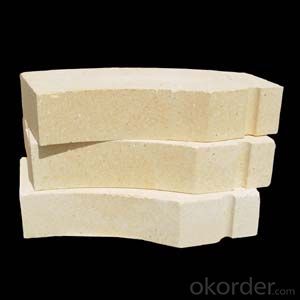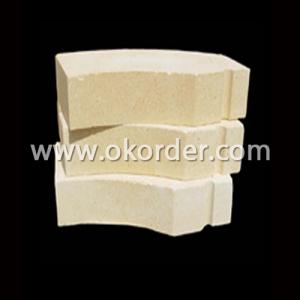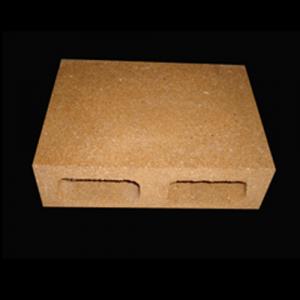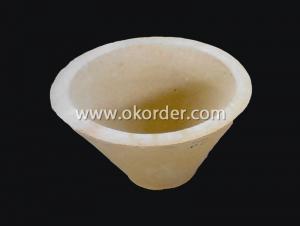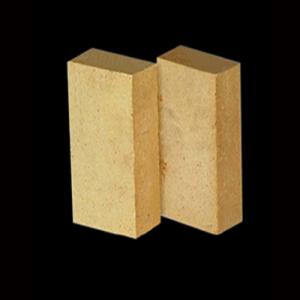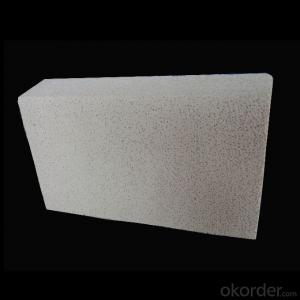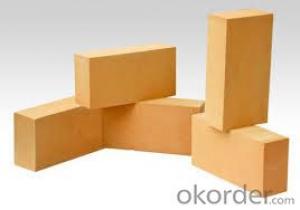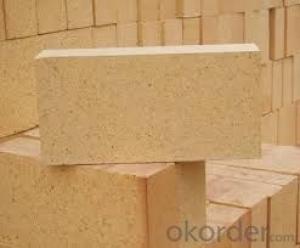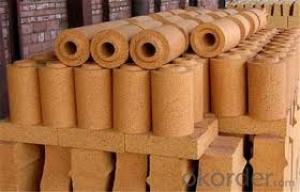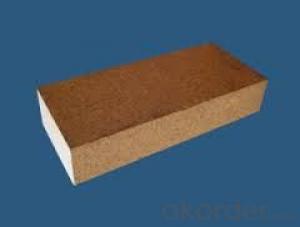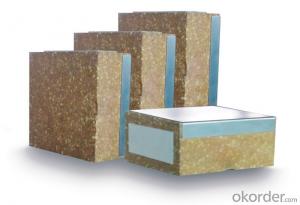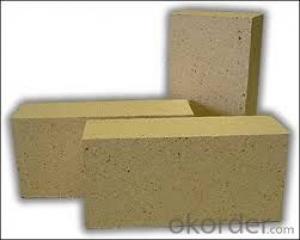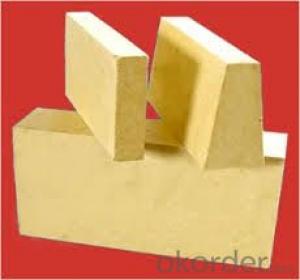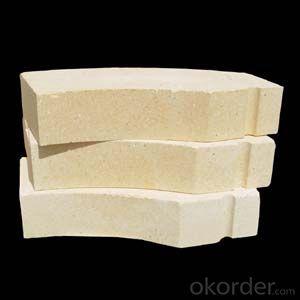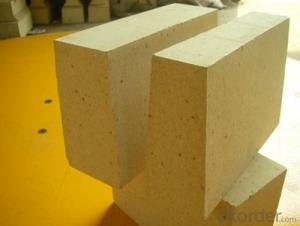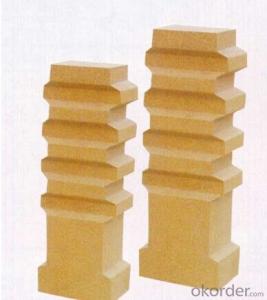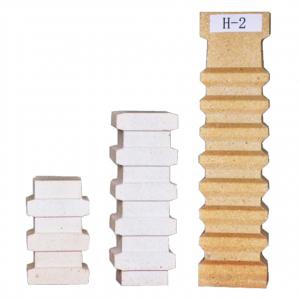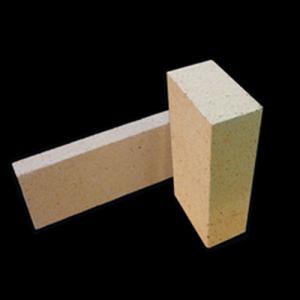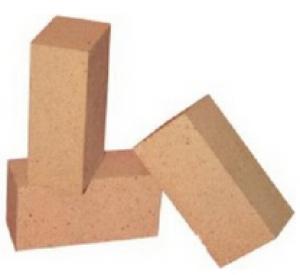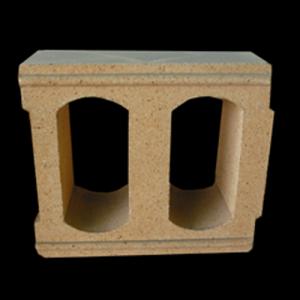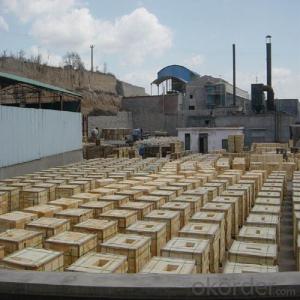High Alumina Bricks for Refractory Ovens - High Alumina Brick Solution
- Loading Port:
- Qingdao
- Payment Terms:
- TT OR LC
- Min Order Qty:
- 2 m.t
- Supply Capability:
- 5000 m.t/month
OKorder Service Pledge
OKorder Financial Service
You Might Also Like
Brief discription for High Alumina Bricks for refractory ovens
CMAX High Alumina Bricks for refractory ovens are classified according to alumina content ranging from 48% to 90%.
CMAX High Alumina Bricks for refractory ovens are commonly used in blast furnace, hot blast furnace, the roof of electric furnace, teeming ladle, rotary kiln,regenerator, etc.
Brief features for High Alumina Bricks for refractory ovens
◆Low thermal conductivity
◆Excellent acid and base slagging resistance
◆High refractoriness
◆Excellent thermal shock resistance
◆Excellent mechanical strength
◆Good spalling resistance and wear resistance.
◆Good corrosion resistance.
◆High-temperature creep rate is quite low.
◆Good volume stability at high temperature.
◆Low bulk density, low thermal conductivity, good thermal insulation performance.
Technical data for High Alumina Bricks for refractory ovens
ITEM | UAL48 | UAL55 | UAL65 | UAL75 | UAL80 | UAL85 | ALP80 |
Refractoriness, ℃ | 1750 | 1770 | 1790 | 1790 | 1810 | 1810 | 1810 |
Apparent Porosity,% | 22 | 22 | 23 | 23 | 20 | 20 | 18 |
C.C.S, Mpa | 39 | 44 | 49 | 53 | 55 | 60 | 100 |
Refractories Under Load (0.2Mpa),℃ | 1420 | 1470 | 1500 | 1520 | 1500 | 1520 | 1550 |
Reheating Linear Change,% | 1450℃x2h 0.1~-0.4 | 1500℃x2h 0.1~-0.4 | 1500℃x2h 0.1~-0.4 | 1500℃x2h 0.1~-0.4 | 1550℃x2h -0.5~+0.5 | 1550℃x2h -0.5~+0.5 | 1550℃x2h -0.5~+0.5 |
Al2O3 Content , % | 48 | 55 | 65 | 75 | 80 | 85 | 82 |
FAQ
Q1:Are you a manufacture or trader?
A:Factory+trade(mainly factories,at the same time,we operates other related products).
Q2:Can we visit your factory?
A:Sure,welcome at any time,seeing is believing.
Q3:What's the MOQ of trial order?
A:No limit,We can offer the best suggestions and solutions according to your condition.
Q4:Which payment terms can you accept?
A:T/T,L/C are available for us.
Q5:After an order is confirmed,when to deliver?
A:15-25days after deposit.
Q6:Is your company accept customization?
A:We have own factory and excellent technical team,and we accept OEM service.
- Q: Is there a big difference between two high alumina brick and one high alumina brick?
- The difference between the two kinds of high alumina bricks is great. I perennial in Zhengzhou was responsible for the production and sale of colt refractories
- Q: The difference between aluminium refractory and magnesia refractory
- Aluminum refractory belongs to neutral refractory material, usually refers to silicon aluminum refractory materials, such as: high alumina brick, clay brick, high alumina castable and other products, the production of raw materials is mainly bauxite.
- Q: What is the difference between T3 refractory bricks and high alumina refractory bricks?
- High aluminum refractory brick brick is all in one type of material classification, the material is AL2O3 high bauxite content above 55%, refractory brick by material into clay bricks, high aluminum brick brick brick corundum brick
- Q: How to make refractory bricks and boiler wall adhesion more firm?
- If the condition, the user heat-resistant steel welding grip nails, expansion joints can not be too big.. Also to use high temperature aluminum brick, high temperature resistance, but also to extend its use cycle.
- Q: What are the specifications for bricks?
- Ordinary brick size of 240 mm * 115 mm * 53 mm, according to compressive strength (Newton / square millimeter, N / mm2) size is divided into MU30, MU25, MU20, MU15, MU10, MU7.5, these intensity levels. Clay brick materials, cheap, durable, and fire prevention, heat insulation, sound insulation, moisture absorption and other advantages, is widely used in civil engineering. Waste brick can also be used as aggregate of concrete. In order to improve the shortcomings of ordinary clay bricks, such as small, self important and waste of soil, they are developing in the direction of light weight, high strength, hollow and big blocks.
- Q: Are there any differences between insulating bricks and refractory bricks?
- The refractoriness of insulating bricks is generally below 1400 tons, while the refractoriness of refractory bricks is above 1400 degrees. 3. density insulation bricks are generally lightweight insulation materials, the density is generally in 0.8-1.0g/cm3, and the density of refractory bricks are basically above 2.0g/cm3.
- Q: How to distinguish the good or bad of the high aluminum brick?
- Weigh the weight of the next block. According to the weight standard, a high alumina brick is 3.9 kg in weight, two in high alumina brick, three in high aluminium brick and 4.5 kg in 4.2. The same grade, the same type of high alumina brick, if the weight of a single brick to this standard, but for high quality high alumina brick, otherwise, can not reach such a weight, it shows good quality. If there is a crack, a large piece of broken angle, four sides of inequality, it is for substandard products.
- Q: How to test the aluminium bricks of high alumina refractory bricks?
- Forming high alumina brick will be tested on some professional equipment, it is suggested that you can go to the professional testing department to know about it!
- Q: What causes breakage of refractory bricks?
- There are many factors that lead to the damage of refractory brick, can be divided into: the chemical loss (e.g. salt penetration, redox phenomenon), heat loss (burning, thermal shock), mechanical loss (kiln deformation, thrust, brick masonry quality etc.).
- Q: The difference between clay bricks and clay bricks
- Clay brick is a small building with artificial bulk. Also called sintered brick. Solid clay brick is one of the oldest building materials in the world. It is a building material that is loved by the people.
Send your message to us
High Alumina Bricks for Refractory Ovens - High Alumina Brick Solution
- Loading Port:
- Qingdao
- Payment Terms:
- TT OR LC
- Min Order Qty:
- 2 m.t
- Supply Capability:
- 5000 m.t/month
OKorder Service Pledge
OKorder Financial Service
Similar products
Hot products
Hot Searches
Related keywords
